Address
304 North Cardinal
St. Dorchester Center, MA 02124
Work Hours
Monday to Friday: 7AM - 7PM
Weekend: 10AM - 5PM
Address
304 North Cardinal
St. Dorchester Center, MA 02124
Work Hours
Monday to Friday: 7AM - 7PM
Weekend: 10AM - 5PM

In the ever-evolving landscape of kitchen appliances, staying ahead of the curve is key to capturing the attention of European consumers. As technology advances and consumer preferences shift, understanding the nuances of market sensitivity and regulatory compliance becomes paramount. This article delves into the intricacies of navigating these challenges, offering insights into how innovative companies are poised to shape the future of kitchen appliances.
The kitchen, once a mere backdrop for culinary creations, has transformed into a hub of innovation and efficiency. Over the years, the European Union (EU) market has witnessed a remarkable evolution in kitchen appliances, reflecting not just technological advancements but also changing consumer lifestyles and preferences.
Early kitchen appliances were simple and limited, focusing primarily on basic functionalities like boiling water or toasting bread. The advent of the refrigerator in the early 20th century marked a significant leap forward, offering homeowners the ability to preserve food and extend its shelf life. This era was characterized by mechanical and electrical innovations that laid the groundwork for the sophisticated appliances we see today.
As the decades rolled on, kitchen appliances became more integrated into the design of homes. The 1950s and 1960s saw the rise of sleek, modern designs that complemented the post-war economic boom. Appliances like dishwashers and washing machines began to enter the average household, freeing up time for families to focus on other activities.
The 1970s and 1980s brought about a wave of energy-efficient appliances, driven by environmental concerns and the oil crisis. This period marked the beginning of the “green revolution” in kitchen technology, with manufacturers focusing on reducing energy consumption and waste.
The 1990s and early 2000s were a time of rapid technological innovation. The introduction of programmable features, smart controls, and automated cleaning cycles transformed appliances into multifunctional devices that could cater to a wide range of cooking styles and preferences. This era also saw the emergence of integrated kitchen systems, where appliances were designed to work together seamlessly.
As we entered the 2010s, kitchen appliances started to become more connected. The rise of the internet of things (IoT) brought appliances that could be controlled remotely via smartphones or tablets, offering convenience and efficiency like never before. Smart refrigerators, ovens, and even coffee makers began to populate European kitchens, promising a new level of personalized experience.
Today, the EU market is at the forefront of kitchen appliance innovation. We see a trend towards appliances that are not only smart but also sustainable. Energy-saving technologies, water conservation features, and eco-friendly materials are becoming standard in new product development. Moreover, there’s a growing emphasis on customization, with appliances that can be tailored to individual needs and preferences.
The evolution of kitchen appliances in the EU market has been driven by several factors. Consumer demands for convenience, efficiency, and sustainability have pushed manufacturers to innovate. Additionally, the integration of technology into everyday life has opened up new possibilities for kitchen appliances. From the simple switch from mechanical to electronic controls to the integration of AI and machine learning, the pace of change has been relentless.
In recent years, there has also been a shift towards healthier living, which is influencing the design and functionality of kitchen appliances. For example, ovens with healthier cooking options, such as convection and steam, are becoming more popular. Similarly, the rise of healthy eating has led to a demand for appliances that can help consumers prepare and store fresh ingredients more effectively.
The EU market has also been shaped by regulatory changes. For instance, the introduction of the Energy Labeling Directive has forced manufacturers to focus on energy efficiency, while the RoHS (Restriction of Hazardous Substances) directive has limited the use of certain materials in appliances, promoting environmental responsibility.
In conclusion, the evolution of kitchen appliances in the EU market is a testament to the power of innovation and the ever-changing needs of consumers. From the humble beginnings of mechanical devices to the sophisticated, connected appliances of today, the kitchen has become a space where technology and functionality go hand in hand, making life easier and more enjoyable for homeowners across Europe.

Navigating the EU market with UKCA certification can be a complex endeavor, but understanding its importance is crucial for any manufacturer looking to enter this vast consumer landscape. The UKCA, or United Kingdom Conformity Assessment, is a mark of compliance that signifies a product meets the necessary standards to be sold in the UK and, by extension, the EU. Here’s a closer look at what UKCA certification entails and why it’s a necessity for market entry.
The UKCA mark is the successor to the CE mark, which was previously used to indicate compliance with EU regulations. With the UK’s departure from the EU, a new certification system was introduced to maintain a level of consistency between the two regions. This new certification ensures that products sold in the UK adhere to the same safety and performance standards as those in the EU, thus providing consumers with a level of trust and quality.
One of the key aspects of UKCA certification is its emphasis on product safety. It requires manufacturers to demonstrate that their products meet the necessary health, safety, and environmental protection standards. This includes electrical safety, mechanical strength, and chemical resistance, among other factors. By obtaining UKCA certification, companies are effectively guaranteeing that their products are safe for consumers to use.
Another critical aspect of UKCA certification is the technical documentation that must be provided. This includes detailed technical files that outline the design, production, and testing processes of the product. These documents must be made available upon request by the authorities, which ensures transparency and allows for regulatory oversight. This level of detail is not only a legal requirement but also a testament to the manufacturer’s commitment to quality and compliance.
The certification process itself can be quite thorough. It involves a series of assessments and inspections to verify that the product meets the required standards. This might include testing samples of the product for compliance, auditing the manufacturing process, and reviewing the manufacturer’s quality management system. The end result is a certificate that can be displayed on the product or packaging, signaling to consumers that the product is certified.
For businesses looking to enter the EU market, UKCA certification serves as a bridge between the UK and the EU’s regulatory frameworks. While the UKCA mark is valid for the UK and Northern Ireland, it does not automatically extend to the rest of the EU. Companies must also ensure their products comply with the EU’s General Product Safety Directive (GPSD) and other relevant EU regulations. This dual certification process can be time-consuming and complex, which is why many turn to specialized certification bodies for assistance.
One of the challenges of UKCA certification is the requirement for local language documentation. The technical files and any correspondence with the certification body must be in English or Welsh for the UK and English or any official language of the EU member state for the EU. This can pose a significant barrier for manufacturers not fluent in these languages, necessitating the hiring of interpreters or translation services.
The costs associated with UKCA certification are also a consideration. Depending on the product category and the complexity of the certification process, fees can vary widely. However, the investment in certification is often seen as a necessary expense to ensure market access and consumer confidence. It’s also an opportunity for manufacturers to improve their product design and manufacturing processes, leading to better quality and potentially reducing long-term costs.
For some products, the UKCA certification process can be streamlined through the use of mutual recognition agreements. These agreements allow for the recognition of certain UK certifications by the EU member states, thereby reducing the need for duplicate testing and certification. This is particularly beneficial for products that are already compliant with EU standards but need the UKCA mark for the UK market.
In conclusion, UKCA certification is a vital step for any company aiming to enter the EU market. It not only ensures compliance with safety and performance standards but also serves as a trust signal to consumers. The process can be intricate, involving technical assessments, documentation, and sometimes additional language requirements. However, with careful planning and the right support, manufacturers can successfully navigate the certification process and secure their place in the competitive EU marketplace.

Navigating the complexities of certification can be a daunting task, especially when it comes to entering a new market. Turnkey UKCA certification services offer a comprehensive solution that simplifies this process, providing numerous benefits to businesses looking to expand into the EU market. Here’s a closer look at some of the key advantages:
Efficiency and Time SavingsThe turnkey approach to UKCA certification ensures that the entire process is streamlined, from initial assessment to final certification. This means that businesses can save significant amounts of time that would otherwise be spent on navigating the intricacies of compliance. With a dedicated team handling all aspects of certification, companies can focus on their core operations, knowing that their products are on track for a smooth entry into the EU market.
Expertise and AssuranceTurnkey services are typically provided by experts who are well-versed in the UKCA certification requirements. Their knowledge and experience ensure that every detail is addressed, reducing the risk of errors and delays. This expertise also provides businesses with the assurance that their products meet all necessary safety and regulatory standards, which is crucial for maintaining consumer trust and avoiding costly recalls.
Cost-Effective SolutionsWhile certification can be a significant investment, turnkey services often offer cost-effective solutions. By handling the entire process, including all necessary documentation and testing, these services can prevent additional expenses that might arise from mistakes or misunderstandings. Moreover, the efficiency of turnkey services can lead to reduced labor costs and faster time-to-market, ultimately saving businesses money in the long run.
Customized SupportEvery business is unique, and so are their certification needs. Turnkey UKCA certification services recognize this and offer customized support tailored to the specific requirements of each client. Whether a company is dealing with a complex product or facing unique challenges due to its size or market position, these services adapt to provide the necessary assistance, ensuring that no stone is left unturned in the certification journey.
Reduced Administrative BurdenCertification processes are notorious for their administrative complexity. Turnkey services take on the burden of paperwork, ensuring that all necessary documentation is correctly prepared and submitted. This not only frees up the company’s administrative staff but also reduces the risk of non-compliance due to administrative errors.
Compliance with EU RegulationsThe UKCA (United Kingdom Conformity Assessed) mark is essential for products that are intended for sale in the EU market. Turnkey services guarantee that all products are fully compliant with the relevant EU regulations, including the General Product Safety Directive (GPSD) and other specific product directives. This compliance is not just about meeting legal requirements; it’s about ensuring that products are safe for consumers and meet the high standards expected in the European market.
Enhanced Brand ReputationBy obtaining UKCA certification through turnkey services, businesses can enhance their brand reputation. The certification mark is a visible sign to consumers that the product has been thoroughly assessed and meets the necessary safety and quality standards. This can be a significant differentiator in a competitive market, as it reassures customers of the product’s reliability and safety.
Peace of MindThe peace of mind that comes with turnkey UKCA certification services is invaluable. Knowing that your products are compliant and ready for the EU market can alleviate the stress of market entry. This allows businesses to focus on other strategic initiatives, such as marketing and sales, without the looming concern of potential compliance issues.
Global ReachAs the EU market is one of the largest in the world, obtaining UKCA certification opens up opportunities for businesses to expand their global reach. Turnkey services not only facilitate entry into the EU but can also serve as a springboard for further international expansion, as the same certification process can often be applied to other markets with similar requirements.
Long-Term Strategic PlanningWith turnkey UKCA certification services, businesses can engage in long-term strategic planning. The knowledge that their products are certified and compliant with EU regulations allows for a more confident approach to market expansion and product development. This can lead to better-informed decisions about future product lines and market strategies.
In conclusion, turnkey UKCA certification services offer a range of benefits that can significantly impact a business’s ability to successfully enter and thrive in the EU market. From efficiency and cost savings to expertise and peace of mind, these services are a valuable asset for any company looking to navigate the complexities of international certification.
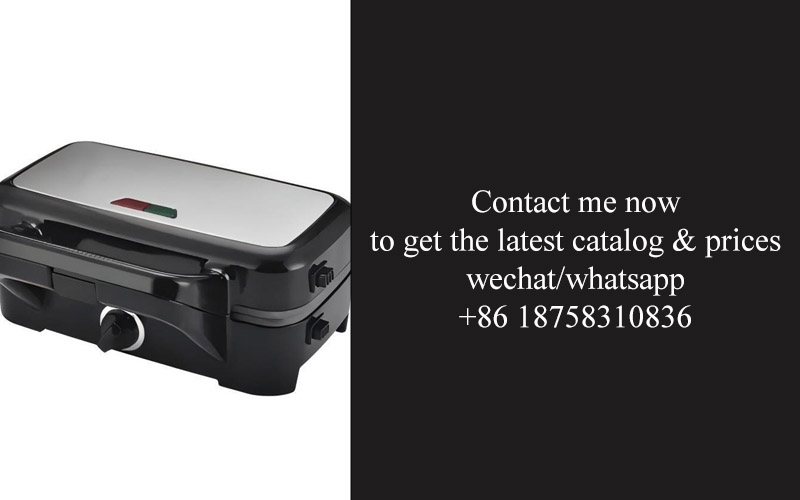
Navigating the complexities of market entry can be daunting, especially when it comes to the European Union (EU) market. The UKCA (United Kingdom Conformity Assessment) mark is a critical component for businesses looking to sell their products in the EU post-Brexit. Turnkey UKCA certification services offer a streamlined approach to this process, ensuring that companies can enter the EU market with ease. Here’s how these services simplify the journey:
Efficient Project ManagementTurnkey services are designed to manage the entire certification process from start to finish. This includes coordinating with various stakeholders, such as certification bodies, testing laboratories, and regulatory authorities. By handling these tasks in-house, these services ensure a smooth and efficient path to obtaining the UKCA mark.
Expertise in ComplianceCompliance with EU regulations is not just about meeting standards; it’s about understanding the nuances of each directive and how they apply to your specific product. Turnkey UKCA certification services are staffed with experts who have a deep understanding of the EU’s regulatory landscape. This expertise translates into a higher likelihood of a successful certification with minimal backtracking.
Customized SolutionsEvery product is unique, and so are the certification requirements. Turnkey services offer customized solutions that cater to the specific needs of your product. Whether it’s a small batch of specialized appliances or a large-scale production of kitchen gadgets, these services adapt to your product’s characteristics, ensuring that all necessary tests and assessments are conducted accurately.
Reduced Time to MarketTime is of the essence in today’s competitive market. Turnkey UKCA certification services can significantly reduce the time it takes to obtain certification. By eliminating the need for companies to navigate the process alone, these services can expedite the certification timeline, allowing businesses to bring their products to market faster.
Cost OptimizationWhile certification is an investment, it doesn’t have to be a costly one. Turnkey services often negotiate better rates with testing laboratories and certification bodies, leveraging their volume and expertise to secure competitive pricing. This cost optimization can help businesses keep their certification costs in check without compromising on quality.
Risk MitigationEntering a new market comes with its own set of risks. Turnkey UKCA certification services mitigate these risks by ensuring that all regulatory requirements are met. This reduces the likelihood of product recalls, fines, or other legal issues that could arise from non-compliance.
Continuous SupportThe journey doesn’t end with obtaining the UKCA mark. Turnkey services often provide ongoing support to ensure that your product remains compliant with EU regulations. This can include periodic audits, updates on regulatory changes, and assistance with any additional certifications that may be required in the future.
Streamlined DocumentationOne of the most challenging aspects of certification is the documentation process. Turnkey services handle the preparation and submission of all necessary documentation, ensuring that it is complete, accurate, and meets the strict requirements of EU regulations. This not only saves time but also reduces the stress of managing complex paperwork.
Enhanced Market AccessWith the UKCA mark, businesses gain direct access to the EU market without the need for additional conformity assessment procedures. Turnkey services facilitate this access by guiding companies through the certification process, making it easier to expand into new markets and reach a broader customer base.
Global ReachTurnkey UKCA certification services are not limited to the UK or the EU; they often have a global reach. This means that businesses can benefit from these services regardless of their location, making it easier to enter multiple markets with a single certification process.
Sustainability and InnovationIn the ever-evolving landscape of kitchen appliances, sustainability and innovation are key drivers. Turnkey services can help companies ensure that their products not only meet current standards but also align with the EU’s push for eco-friendly and innovative solutions.
By streamlining the UKCA certification process, turnkey services provide a comprehensive solution that addresses the unique challenges of entering the EU market. From managing the project to optimizing costs and ensuring compliance, these services are a valuable asset for any business looking to expand its reach in the European Union.
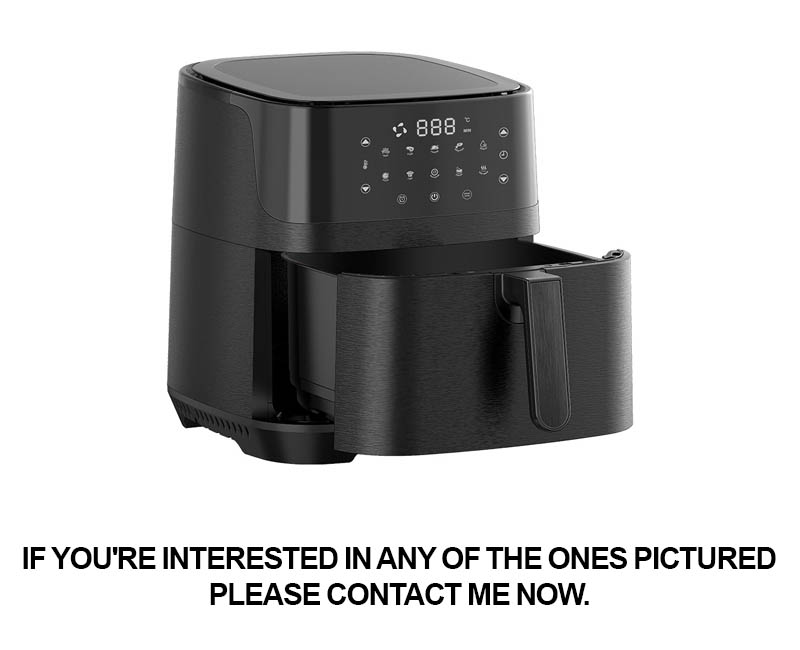
The European kitchen appliance market is a dynamic landscape, always seeking new and innovative solutions to meet the evolving needs of consumers. From smart features to sustainable designs, here are some fresh ideas shaping the future of kitchen appliances for the European consumer.
Smart Integration: Kitchens are becoming more than just places to cook; they’re hubs of technology. Appliances that integrate with smartphones and home automation systems are becoming increasingly popular. Imagine a fridge that not only keeps your food fresh but also suggests recipes based on its contents, or an oven that adjusts its temperature settings automatically for the perfect bake.
Energy Efficiency: With a growing focus on sustainability, energy-efficient appliances are at the forefront. Designers are exploring materials and technologies that reduce energy consumption, from induction cooktops that use less power to LED lighting that illuminates kitchen counters with minimal energy drain.
Interactive User Experience: The next wave of kitchen appliances may feature interactive interfaces that provide real-time feedback and assistance. Think of a blender with a built-in scale that offers step-by-step instructions for making the perfect smoothie, or a coffee machine that learns your preferred temperature and strength settings over time.
Modular Design: European consumers value flexibility, and modular kitchen appliances are responding to this demand. These appliances come in separate components that can be mixed and matched to fit different kitchen layouts and personal preferences. For instance, a modular oven range could include a compact induction cooktop and a microwave drawer, allowing for a more customized cooking experience.
Health and Wellness Features: As health consciousness grows, kitchen appliances are incorporating features that promote wellness. This includes appliances with built-in water filters, non-toxic coatings, and even air purification systems to ensure that the food and air in the kitchen are as pure as possible.
Eco-Friendly Materials: The shift towards sustainability is not just about energy efficiency; it’s also about the materials used in the construction of appliances. New materials like recycled plastics, biodegradable resins, and sustainable woods are being used to create kitchen appliances that are both functional and environmentally friendly.
Customizable and Personalized Features: Personalization is key in the European market. Appliances that can be customized to meet individual preferences are gaining traction. From adjustable speed settings on mixers to customizable temperature controls on ovens, these features cater to the diverse needs of consumers.
Connectivity and Data Analytics: The era of big data is reaching the kitchen as well. Appliances that can connect to the internet and analyze usage patterns can offer insights into energy consumption, suggest maintenance schedules, and even provide tips for improving cooking techniques.
Sustainability and Circular Economy: Appliances designed with a circular economy in mind are becoming more common. This means creating products that are durable, repairable, and recyclable, reducing waste and extending the lifespan of kitchen appliances.
Ease of Use and Accessibility: User-friendly design is another important aspect. European consumers are looking for appliances that are easy to operate, clean, and maintain, especially for those with disabilities or mobility challenges. Features like touchless controls, voice activation, and intuitive interfaces are becoming standard.
Innovative Cooking Techniques: New cooking technologies are emerging that push the boundaries of traditional cooking methods. From sous-vide ovens that cook food at precise temperatures to multi-functional appliances that can perform a variety of cooking tasks, these innovations are changing the way people prepare meals.
These fresh ideas for kitchen appliances are not just about adding new features; they’re about enhancing the overall kitchen experience. By focusing on smart integration, energy efficiency, health and wellness, modular design, and sustainable practices, manufacturers are setting the stage for a more innovative and consumer-centric European kitchen appliance market.
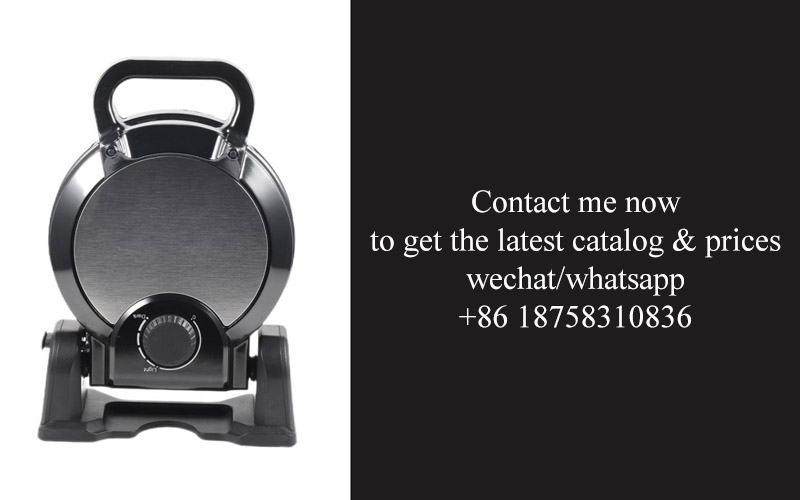
Navigating the ever-evolving landscape of kitchen appliances, staying ahead of the curve is paramount for any brand aiming to captivate the European consumer. To achieve this, leveraging data-driven insights is not just beneficial—it’s essential. Let’s delve into how these insights can lead to success in the competitive European market.
Technology integration has become a cornerstone in kitchen appliance design. Smart features like voice control, app connectivity, and energy efficiency are no longer just novelties; they’re expectations. Brands that infuse their products with cutting-edge tech are not only meeting but exceeding consumer demands.
Consumer preferences are shifting towards sustainability and eco-friendliness. Appliances that offer energy-saving modes, use recyclable materials, and contribute to a lower carbon footprint are gaining traction. Data on consumer behavior and environmental concerns show that investing in green technology can pay off significantly in terms of brand loyalty and market appeal.
Health and wellness have become central themes in modern living, and this extends to kitchen appliances as well. The rise of air fryers, slow cookers, and sous-vide machines reflects a growing interest in healthier cooking methods. Brands that analyze consumer health trends and incorporate these into their product lines are likely to resonate with a broader audience.
User experience is paramount in the kitchen appliance market. Data from usability studies and customer feedback indicate that intuitive interfaces, easy-to-clean designs, and ergonomic features are highly valued. Companies that prioritize user-friendliness in their product development are more likely to see increased sales and positive reviews.
The European market is diverse, with varying preferences across different countries. Data analytics can help brands tailor their offerings to specific regions, ensuring that marketing strategies and product features align with local tastes and needs. This localized approach can lead to higher customer satisfaction and market penetration.
Innovation is a constant in the kitchen appliance industry, but it’s not just about introducing new gadgets. It’s about solving real problems and anticipating future needs. By analyzing consumer habits and market trends, brands can identify gaps in the market and develop products that address these unmet needs.
The integration of AI and machine learning into kitchen appliances is on the rise. These technologies can offer personalized cooking recommendations, predictive maintenance, and even automated inventory management. Brands that embrace these advancements and use data to refine their offerings are setting themselves up for long-term success.
Sustainability is not just about reducing waste; it’s also about creating a positive brand image. Data on consumer perceptions show that sustainability is a major factor in purchasing decisions. Companies that can demonstrate a commitment to environmental responsibility through their products and operations are likely to attract environmentally conscious consumers.
The rise of e-commerce has changed how consumers interact with kitchen appliances. Data analytics can provide valuable insights into online shopping behaviors, such as the importance of reviews, the impact of social media, and the effectiveness of different advertising channels. By understanding these digital trends, brands can optimize their online presence and sales strategies.
Lastly, the importance of after-sales service cannot be overstated. Data on customer satisfaction and the cost of returns can inform the development of more robust products and improved customer support systems. Brands that invest in quality after-sales service and use data to continuously improve their offerings are more likely to retain customers and build a strong reputation.
In conclusion, staying informed about industry trends and using data-driven insights to inform product development, marketing strategies, and customer service can be the difference between a brand that merely survives and one that thrives in the European kitchen appliance market. By understanding the consumer, anticipating needs, and leveraging technology, brands can create products that not only meet but exceed expectations.
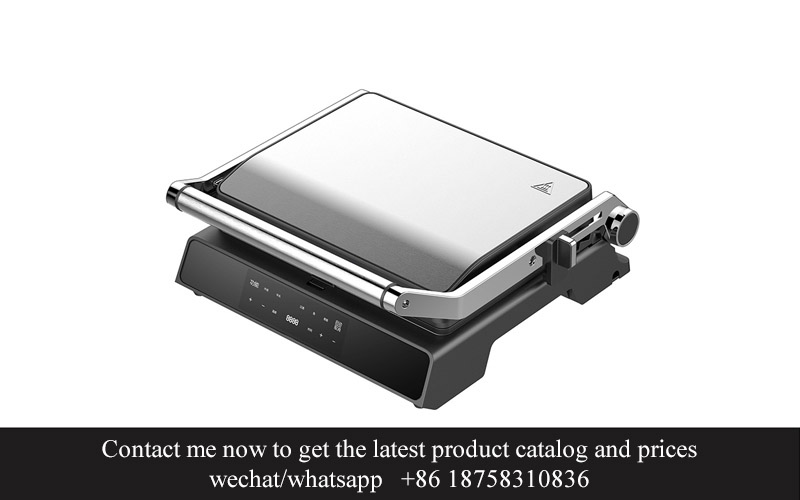
Navigating consumer preferences and market trends, understanding the nuances of the European market, and incorporating cutting-edge technology are pivotal elements in kitchen appliance design. The role of market sensitivity cannot be overstated as it shapes the direction of product development and innovation.
Designing for Aesthetic AppealConsumers in the European market are not only looking for functional kitchen appliances but also for those that enhance the overall aesthetic of their homes. Designers must balance practicality with style, creating products that are visually appealing while also being user-friendly. The use of sleek lines, modern materials, and intuitive interfaces has become increasingly important in appealing to the discerning tastes of European consumers.
Embracing SustainabilityThe European market is particularly attuned to sustainability and eco-conscious products. Kitchen appliance designers must consider the lifecycle of their products, from production and material sourcing to energy efficiency and recyclability. Incorporating sustainable materials and energy-saving technologies not only aligns with consumer values but also opens up new markets for brands that prioritize environmental responsibility.
Personalization and CustomizationPersonalization has become a significant trend in kitchen appliance design. Consumers are looking for products that can be tailored to their specific needs and preferences. This could range from adjustable settings and programmable functions to appliances that can be integrated into smart home systems. Designers must ensure that the customization options do not sacrifice the appliance’s ease of use or reliability.
Innovation in Smart TechnologyAs technology advances, so does the expectation for smart features in kitchen appliances. European consumers are embracing the convenience and efficiency that smart technology offers. From remote control capabilities to voice-activated commands and predictive maintenance, integrating innovative technology can make kitchen appliances more intuitive and responsive to user needs.
Understanding Local Regulations and StandardsMarket sensitivity also involves a deep understanding of local regulations and standards. Each European country may have its own set of requirements for kitchen appliances, ranging from safety certifications to energy efficiency labels. Designers must be acutely aware of these variations to ensure compliance without compromising on product quality.
Adapting to Changing LifestylesThe way people live and work has evolved, and kitchen appliances must adapt to these changes. For example, smaller living spaces have spurred the demand for compact appliances, while increased time spent at home due to various factors has led to a greater need for multi-functional devices that can handle a variety of tasks efficiently.
Cultural ConsiderationsCultural differences play a crucial role in kitchen appliance design. For instance, in some European countries, certain types of appliances, such as espresso machines or induction cooktops, are more popular than in others. Designers must consider these cultural nuances to ensure that their products resonate with the target market.
Customer Feedback and Continuous ImprovementListening to customer feedback is essential for successful kitchen appliance design. Regularly collecting and analyzing consumer data helps designers identify areas for improvement and innovate in response to customer needs. This feedback loop ensures that products remain relevant and competitive in the ever-changing market landscape.
Collaboration with Professional Chefs and Home cooksDesigners can gain valuable insights by collaborating with professional chefs and home cooks. These experts can provide insights into the practical aspects of kitchen appliances that are often overlooked by the general public. Their input can lead to the creation of appliances that not only look good but also perform exceptionally well under various cooking conditions.
In conclusion, market sensitivity in kitchen appliance design is about more than just creating products that meet basic functional requirements. It’s about understanding the diverse needs and preferences of European consumers, embracing sustainability, leveraging technology, and adapting to the evolving landscape of the market. By doing so, designers can create products that not only satisfy but also exceed consumer expectations.
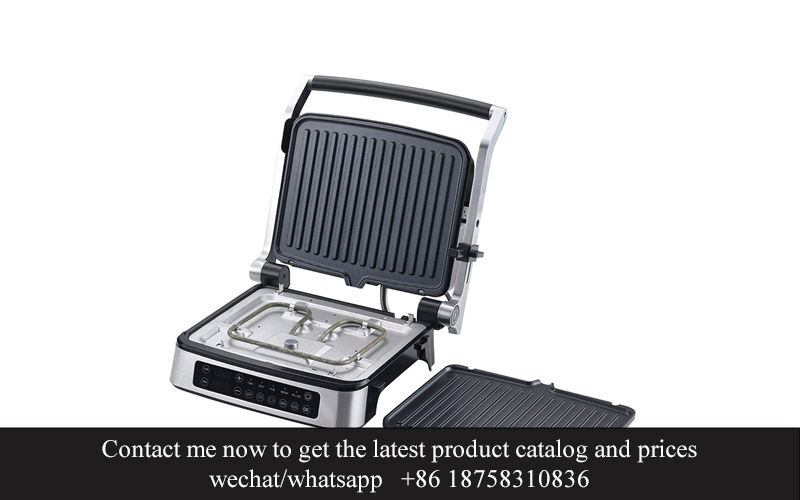
In the realm of kitchen appliance certification, there are several turnkey UKCA certification projects that have demonstrated the effectiveness of a streamlined process. These case studies highlight the successes achieved by companies navigating the complexities of EU market entry.
A European manufacturer of smart kitchen appliances faced a significant challenge when it came to understanding the UKCA certification requirements. With a product line that promised cutting-edge technology, the company needed a solution that would not only meet the regulatory standards but also ensure their products were ready for the competitive European market. After partnering with a turnkey certification service, they were able to navigate the certification process smoothly, ensuring their smart ovens, dishwashers, and refrigerators were compliant with the UKCA standards.
The turnkey service provided comprehensive support, from initial assessment to final certification. They worked closely with the manufacturer to identify all necessary documentation and test requirements. This collaboration led to a thorough understanding of the product specifications and the regulations that governed their design and functionality. The end result was a successful certification that allowed the manufacturer to confidently launch their products in the EU market.
Another case study involves a small startup that developed a unique, energy-efficient stove. The founders were passionate about sustainability but lacked the resources to navigate the certification process alone. The turnkey UKCA certification service played a pivotal role in guiding the startup through the regulatory maze. By leveraging their expertise, the service ensured that the stove met all the necessary safety and environmental standards, enabling the startup to secure a place in the European market.
The turnkey service’s approach was tailored to the startup’s needs, providing a flexible and cost-effective solution. They helped the startup understand the importance of compliance and how it could be a competitive advantage. The certification process was completed within a timely manner, allowing the startup to bring their innovative stove to market without delay.
In a different scenario, a well-established kitchen appliance brand faced the challenge of expanding into new EU member states. The UKCA certification process was a new hurdle, and the brand needed a partner to ensure a seamless transition. The turnkey service was engaged to manage the certification for a range of their products, including cooktops, microwaves, and kitchen hoods.
The service began by conducting a thorough audit of the brand’s existing certifications and identifying any gaps that needed to be addressed. They then coordinated with the necessary authorities to ensure that all products were in line with the UKCA standards. The result was a successful certification that allowed the brand to expand its market reach without compromising on quality or safety.
One of the key benefits of the turnkey service was their ability to provide ongoing support. They helped the brand stay informed about any changes to the UKCA regulations and ensured that their products remained compliant throughout the certification process. This proactive approach was crucial in maintaining the brand’s reputation for high-quality appliances.
A final case study involves a company that specializes in eco-friendly kitchen appliances. They were keen to enter the EU market with a range of products that were not only sustainable but also met the stringent UKCA certification requirements. The turnkey service was chosen for their expertise in environmental certifications and their commitment to sustainability.
The service worked closely with the company to ensure that their appliances were not only energy-efficient but also adhered to the EU’s environmental guidelines. They facilitated the necessary testing and provided guidance on how to optimize the products for the European market. The end result was a successful certification that allowed the company to introduce their eco-friendly products to European consumers.
These case studies showcase the value of turnkey UKCA certification services in streamlining the entry into the EU market. By providing comprehensive support, tailored solutions, and ongoing guidance, these services have helped a variety of companies achieve certification and bring their innovative products to European consumers. The success stories serve as a testament to the importance of compliance and the role that expert certification services play in facilitating market entry.
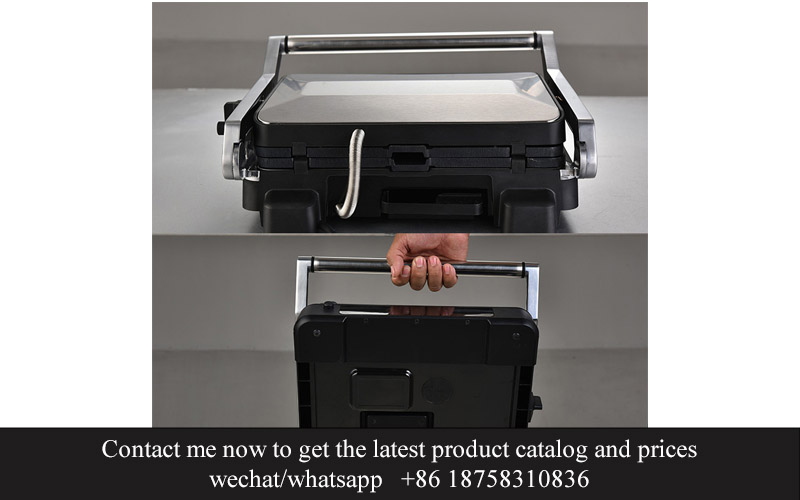
Understanding the complexities of regulatory frameworks can be daunting for any business, especially when it comes to the intricacies of certification processes. Here’s a look at how expert guidance can help navigate these challenges with ease.
The Nuances of Certification ProcessesCertification requirements can vary widely depending on the product and market. Expert guidance ensures that businesses understand the specific certifications needed for their products to comply with EU regulations. This includes the UKCA (United Kingdom Conformity Assessment) mark, which is crucial for products entering the EU market after the UK’s departure from the European Union.
Expertise in Interpretation of RegulationsRegulatory language can be dense and often requires a nuanced understanding. Experts in regulatory compliance can interpret these regulations with precision, ensuring that businesses don’t miss critical details that could lead to delays or non-compliance.
Streamlined Procedures for Faster Market EntryTurnkey certification services can streamline the process of obtaining certifications. By handling everything from documentation to testing, these services can significantly reduce the time it takes for a product to gain market access. This is particularly beneficial for businesses looking to launch new products quickly.
Mitigating Risks of Non-ComplianceNon-compliance with regulatory standards can lead to serious consequences, including fines, market bans, and reputational damage. Expert guidance helps mitigate these risks by ensuring that all aspects of certification are addressed correctly, reducing the likelihood of non-compliance.
Customized Solutions for Diverse Product LinesNo two products are the same, and neither are their compliance needs. Expert consultants can tailor their services to the unique requirements of each product line, ensuring that the certification process is as efficient as possible without compromising on quality.
Enhanced Product Quality and SafetyCertification processes often involve rigorous testing to ensure product safety and quality. With expert guidance, businesses can not only meet regulatory standards but also improve their product offerings. This can lead to increased consumer trust and loyalty.
Collaboration with Testing LaboratoriesExpert consultants often have established relationships with reputable testing laboratories. This collaboration can expedite the testing process, ensuring that products are tested efficiently and accurately, leading to faster certification.
Cost-Effective ComplianceWhile certification can be costly, expert guidance can help businesses manage these expenses more effectively. By optimizing the certification process and identifying potential cost-saving opportunities, consultants can help ensure that compliance is achieved without overburdening the budget.
Regulatory Updates and Continuous ComplianceRegulations are not static; they evolve over time. Expert consultants stay abreast of these changes and can advise businesses on how to maintain compliance. This includes updating certifications as new regulations are introduced or existing ones are revised.
Risk Management and Business ContinuityNavigating regulatory challenges is not just about obtaining certifications; it’s also about managing risks. Expert guidance can help businesses develop strategies for business continuity, ensuring that compliance issues don’t disrupt operations.
Case Studies: Real-World Success StoriesOne of the most compelling reasons to seek expert guidance is the wealth of experience consultants bring to the table. Case studies of successful projects demonstrate how expert consultants have helped businesses overcome regulatory hurdles and achieve certification with minimal disruption.
Building Long-Term PartnershipsExpert consultants often form long-term partnerships with their clients. This ongoing relationship ensures that businesses have access to the latest insights and support as they navigate the ever-changing regulatory landscape.
In conclusion, expert guidance is invaluable when navigating the complex world of regulatory compliance. From understanding certification processes to ensuring ongoing compliance, consultants play a crucial role in helping businesses thrive in a highly regulated market.
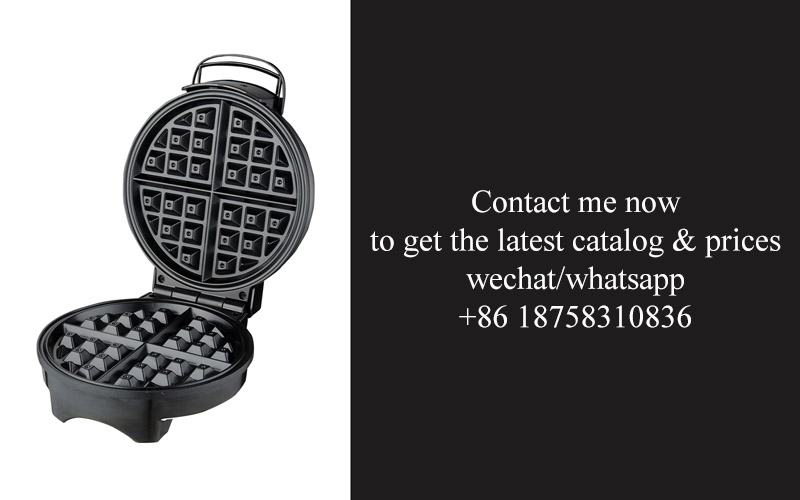
In the ever-evolving landscape of kitchen appliances, staying ahead of the curve is crucial. From smart cookers to eco-friendly dishwashers, the future promises a myriad of innovations that could revolutionize the way we interact with our kitchens. Let’s delve into some of the potential trends and technologies that might shape the next big thing in kitchen appliances.
Technological Integration continues to blur the lines between kitchen gadgets and smart home systems. Imagine a fridge that not only keeps your food fresh but also suggests recipes based on the contents. Smart appliances are becoming more interconnected, sharing data to optimize performance and user experience.
Energy Efficiency remains a cornerstone of innovation. As sustainability becomes a more pressing concern, we can expect to see appliances that consume less energy without compromising on functionality. Energy-saving features like LED lighting, programmable settings, and adaptive power consumption are likely to become standard.
Health and Wellness are taking center stage in kitchen appliance design. We’re seeing a rise in appliances that not only cater to culinary preferences but also promote health. For instance, air fryers that offer healthier alternatives to deep-frying and countertop juicers that make it easier to incorporate fresh fruit and vegetables into your diet.
Customization and Personalization are becoming more prevalent. Consumers are increasingly seeking appliances that can be tailored to their specific needs and preferences. This could range from adjustable cooking temperatures in ovens to dishwashers with customizable cleaning cycles that cater to different types of dishes.
Sustainability and Eco-Friendly Practices are becoming more than just buzzwords. Manufacturers are focusing on creating appliances that are not only efficient but also environmentally friendly. This includes using recycled materials, designing for longer lifespans, and ensuring that appliances are easy to recycle at the end of their life.
Augmented Reality (AR) and Virtual Reality (VR) could play a role in kitchen appliance design. Imagine using AR to visualize kitchen layouts or VR to simulate cooking techniques without the risk of burning your fingers. These technologies could make kitchen planning and learning new cooking methods more accessible and engaging.
Artificial Intelligence (AI) and Machine Learning (ML) are poised to make kitchen appliances smarter. From AI-driven refrigerators that can predict your food needs to ML algorithms that learn and adapt to your cooking habits, these technologies promise a more intuitive and responsive kitchen experience.
Interactive Cooking Assistants are becoming more sophisticated. These devices are no longer limited to timers and recipe suggestions; they can now offer real-time feedback, nutritional information, and even cooking tutorials. The integration of voice assistants and smart screens is making these interactive assistants more like personal chefs.
In the realm of kitchen appliances, innovation is not just about new features; it’s about enhancing the overall kitchen experience. As we move forward, we can anticipate a future where appliances are not just tools but companions that make our lives easier, healthier, and more enjoyable. The next big thing in kitchen appliances will likely be a fusion of cutting-edge technology, health-conscious design, and personalized user experiences.